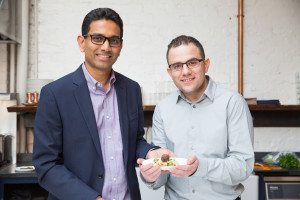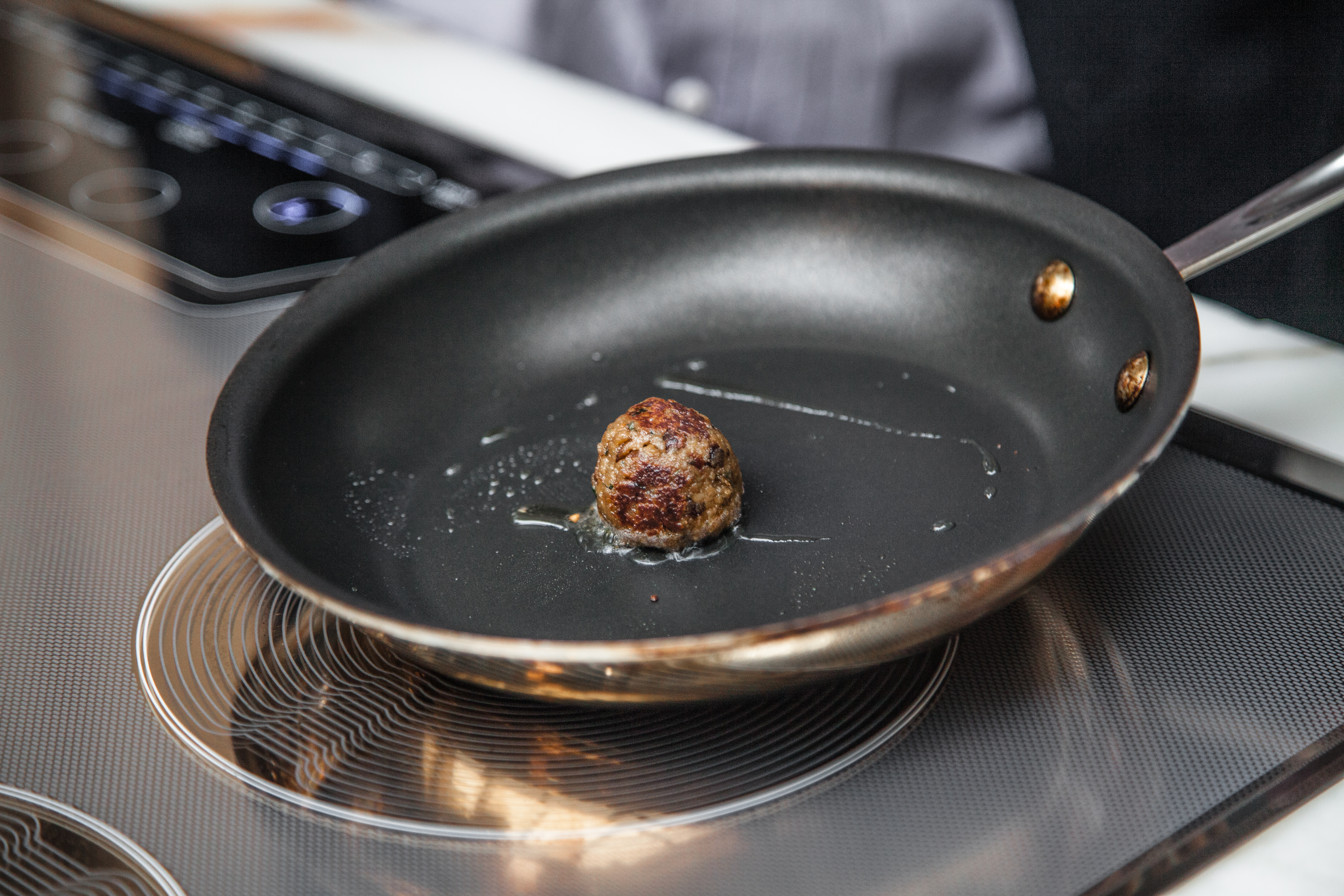Memphis Meats, the startup growing meat in a laboratory, has closed its seed round oversubscribed on $2.75 million after attracting investment from accelerator venture capital firm SOSV, food-focused VC New Crop Capital and a group of angel investors.
The startup differs from other alternative protein companies which are using plant proteins to create alternative meat products that taste and feel like meat; Memphis Meats is growing actual meat tissue through cell renewal technology.
An alumnus of SOSV’s Indie Bio accelerator, which funded the startup until now, Memphis Meats was originally targeting a $1.5 million raise but increased the round on overwhelming demand from investors, according to Uma Valeti, co-founder and CEO of the company.
The startup has already grown meat and has had tasting sessions of meatballs made from its meat. But it is still very much at the research and development stage of its growth after only incorporating at the beginning of 2015. The funding will go towards continued R&D at its new labs in the Bay Area of San Francisco.
AgFunderNews caught up with Valeti this week to hear more about the company’s progression.

How did Memphis Meats come to be formed?
My background is as a cardiologist, but I’ve always been interested in finding meat that’s healthier, safer and better for us humans as well as the environment. Since I was a child, I have been motivated by the idea of eating what you love, but also sustainably, and this led me to medical school. While working as a cardiologist, I started noticing that in medicine we were injecting cells into heart attack patients to generate and repair the heart muscle. So I thought, ‘why can’t we do the same in growing food?’ If cells can grow into human tissue, they should also be able to grow into meat.
I then ran into a group called New Harvest, a non-profit accelerating technology in this space, and I joined the board, where I have served for three years. During that time I met a fair number of other relevant people globally but mainly Nick Genovese, my co-founder, who is a poultry farmer and stem cell biologist, and we formalized the idea. We applied to Indie Bio, and SOSV called us within an hour of our application, and that’s how we started off our adventure in becoming a private company.
How were you funded until raising this seed round?
SOSV funded us as part of their accelerator program.
What’s the timeline for marketing a consumer product?
It’s all a function of funding. We feel like we have the science worked out, so it’s an engineering challenge at this point to meet the demand for our meat. Our goal is to be in the market in three years’ time and in retail in five years, by 2021.
How do you compare with others in the alternative protein space?
Our product is real meat; everything else is a meat analogue. They have a great market presence, and they are definitely opening up another sector that’s great for all of us going forward. We are the first to grow meat, but we expect, and want, others to join us and for information to be shared across this platform. It’s just like when the horse and buggy were replaced by cars; multiple brands stepped up to produce them, and we expect the same thing to happen in our industry.
What is your process?
We identify meat cells that are capable of cell renewal, and we create a nutrient-rich condition to grow in, with the nutrients required for any animal to grow. These include oxygen, minerals and peptides produced with our proprietary cultivation techniques. We need far fewer inputs and resources than are required to grow meat from animals. And that’s why we believe we are much more inherently efficient. Plus we can acquire the cells we need from a living animal; it doesn’t have to be slaughtered.
So what’s with the meat balls?!
We invited a chef from Los Angeles to cook with our meat and gave him creative freedom on what to make with it. He chose to make a meatball; it could have just as easily been a burger or a sausage! So that’s why the media picked up on the meatballs!
Can vegetarians eat your meat?
It depends on why they are vegetarian or vegan. If it’s for ethical reasons and they don’t want to eat meat from animals that have been slaughtered, then yes they could. But there could be other reasons that mean a vegan or vegetarian can’t eat it.
What will be your biggest challenge?
Global demand for meat is doubling, and I have reason to think that demand for our meat will be even higher; that’s our guiding philosophy. Consumers for the first time will have a choice compared to now when they’re eating with their eyes wide shut, and they don’t want to think about the inhumane conditions in which meat is produced. Our process will also have no potential for bacterial contamination and no cruelty. A third of people surveyed by us said they will pay more for natural ingredients, without antibiotics or other contaminants, and we want to explore that effect. We have no reason to be discouraged.
What are your views on cultured meat? Get in touch on [email protected]





